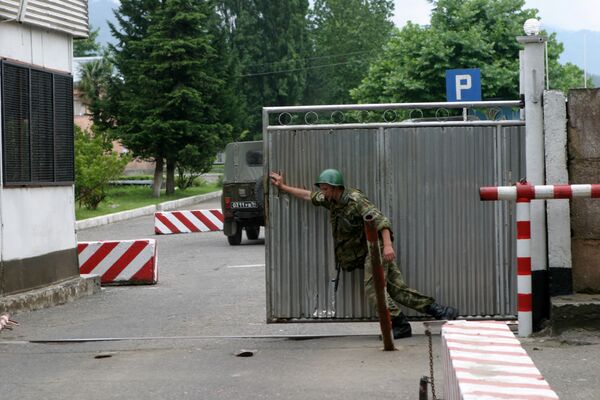The creation of a Russian military base near the Kyrgyz city of Osh would contribute to the struggle against Afghan drug trafficking, the head of the Russian Federal Drug Control Service said on Thursday.
Viktor Ivanov said during a video linkup between Moscow and Washington that the base was "already being discussed by the [Russian and Kyrgyz] defense ministries."
Osh region, which borders Tajikistan, is a major gateway for drug trafficking from Afghanistan, where 90% of the world's opium is produced, Ivanov said, adding that the drug flow spreads from Tajikistan to the entire Central Asian lowland.
The official said Russia's Defense Ministry units, if deployed in Kyrgyzstan, could help fight drug traffickers.
Russia already has a military base in the north of Kyrgyzstan, some 15 kilometers (9 miles) from the capital, Bishkek. The United States also has a base near Bishkek, which is now used as a transit center for supplying troops in Afghanistan.
Ivanov said the creation of U.S. military bases in Colombia helped prevent the flow of drugs to the United States.
"As a result of large-scale cocaine traffic from Colombia the decision was made to establish seven [U.S.] military bases in this country. This allowed them to use planes to destroy some 230,000 hectares of cocaine plantations," he said. "For comparison, less than 3,000 hectares of drug plantations are being destroyed in Afghanistan with hoes and sticks."
Some 3.5 million Afghan peasants are involved in drug production, which is a major source of income for the impoverished population and Taliban militants alike.
Drug production has increased 40 times in Afghanistan since 2001. An estimated 90% of heroin consumed in Russia is trafficked from Afghanistan via former Soviet republics of Tajikistan and Uzbekistan. According to expert estimates, Afghan drugs have killed more than 1 million Russians over the past 10 years.
A Russian lawmaker earlier said Kyrgyzstan shut down its anti-drug trafficking department in 2009, and later liquidated the country's anti-drug agency, allowing drug dealers almost free reign.
The unrest, which began in the city of Osh on June 11 and then spread to nearby Jalalabad, claimed the lives of more than 260 people, according to official estimates, although unofficial estimates could be up to 10 times higher.
MOSCOW, June 24 (RIA Novosti)


